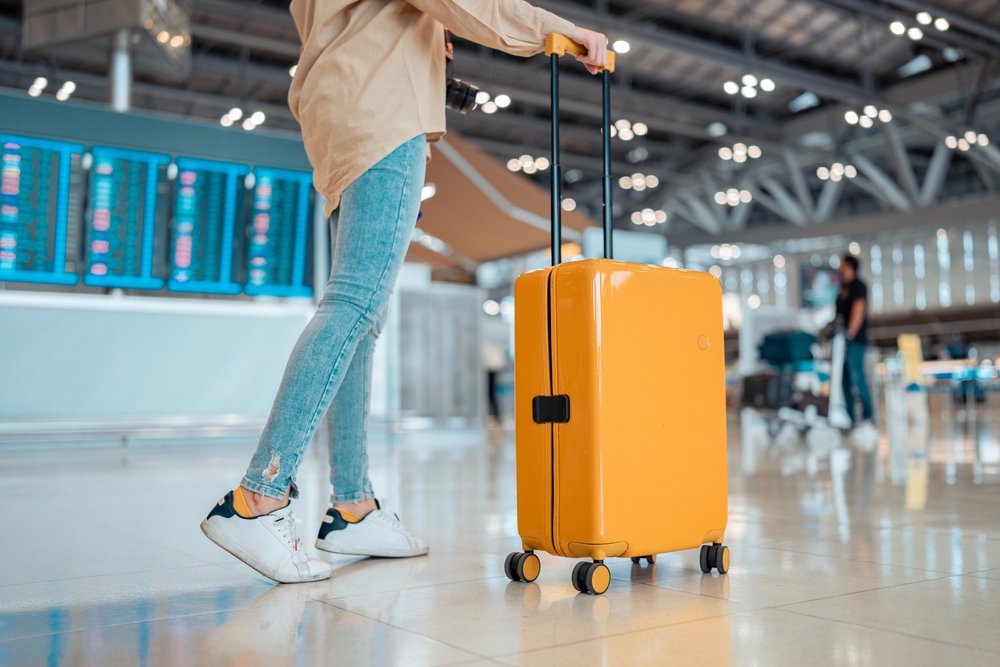Travel hacks are designed to make journeys easier, yet some actually complicate things. Many common travel tricks sound clever but cause more stress than relief. By spotting these mistakes, you can save time, avoid frustration, and enjoy smoother adventures without unnecessary setbacks.
Packing Too Many Clothes

Overpacking may feel safe, but it slows you down and makes travel less enjoyable. Heavy luggage brings airline fees, delays, and reduced flexibility when moving between places. Instead, pack versatile clothing that mixes and layers well, giving you more outfit choices with fewer items. Choose lightweight fabrics and neutral colors to keep your wardrobe practical. Rolling items tightly creates more space, prevents wrinkles, and reduces clutter inside your bag. With less to carry, you also move faster and spend less energy.
Using Neck Pillows Incorrectly
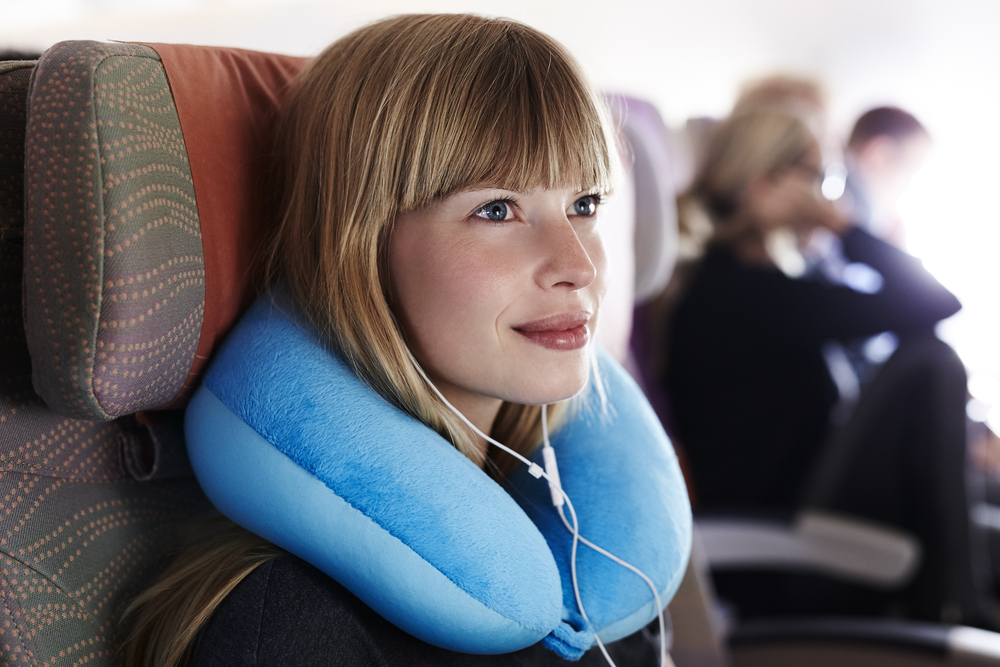
Neck pillows are popular travel aids, but many people use them wrong during long flights or train rides. Worn backward, they allow your head to drop forward, leading to neck pain. For proper support, rotate the pillow so the thicker side sits under your chin or jawline. This position reduces strain, supports your head, and helps you rest more comfortably. Inflatable pillows are excellent because they fold flat, save valuable luggage space, and weigh very little. By using the pillow correctly, you prevent stiffness and arrive more refreshed.
Booking Too Far in Advance
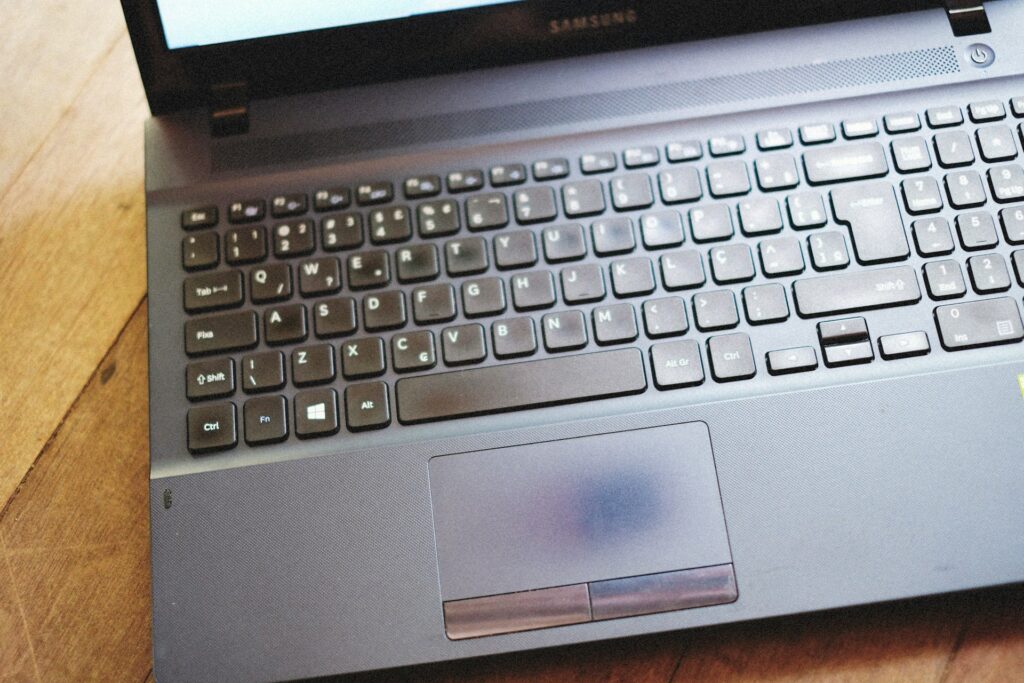
Some trip strategies suggest booking flights early, but doing it too soon can backfire and cost you more. Airlines adjust fares frequently, often reducing prices closer to departure. Hotels also lower rates when unsold rooms remain close to check-in dates. Instead of rushing, monitor price trends with flexible dates to catch better deals. Flexibility gives you access to discounts that rigid early booking might miss. Timing your reservations wisely saves money, reduces regret, and leaves room for spontaneous decisions. Smart travel tips always include knowing when to commit and when to wait.
Believing Rollers Are Always Best
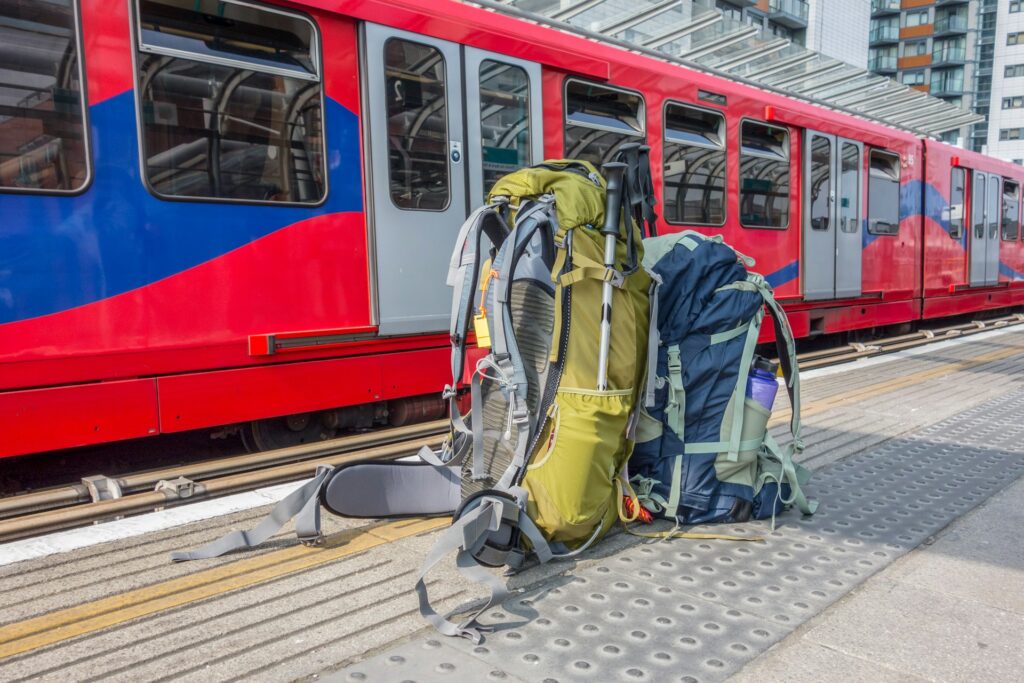
Wheeled suitcases are convenient in airports but fail badly on cobblestones, dirt paths, or crowded train stations. Dragging them in such conditions wastes energy and frustrates travelers. In those cases, backpacks or hybrid bags prove more practical and reliable. If your trip includes both urban and rural destinations, a bag with straps and wheels offers the best balance. Choosing luggage based on your actual journey prevents unnecessary problems. Smart travel tricks always consider terrain, not just appearance. Packing smarter with the right bag helps you adapt quickly, no matter where your trip leads.
Keeping Important Items in Checked Bags
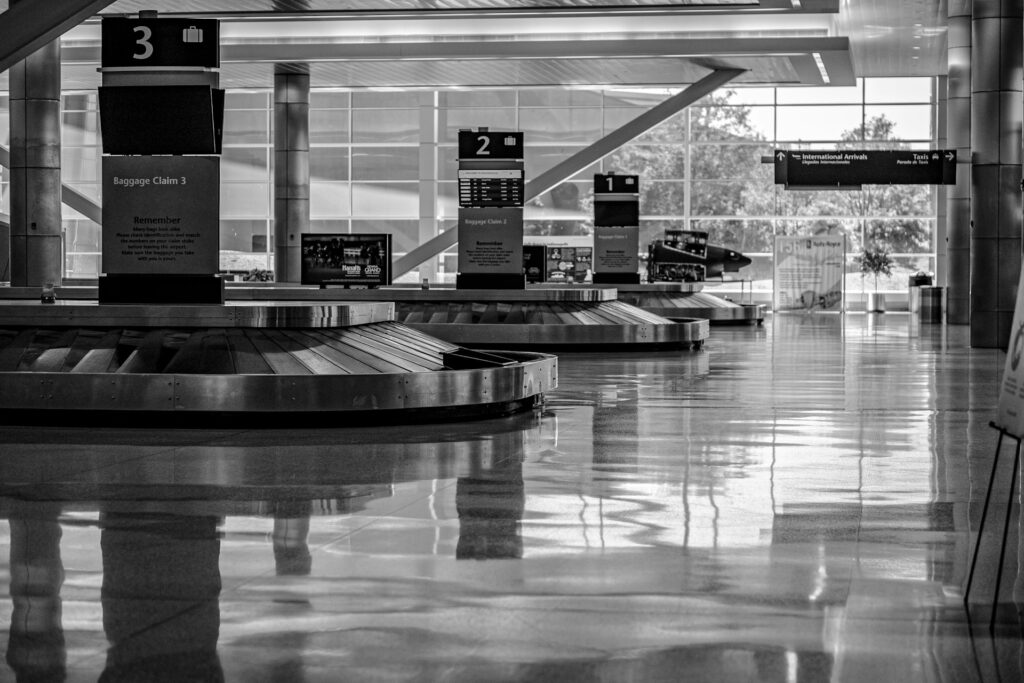
https://unsplash.com/photos/grayscale-photo-of-a-building-At8A_BAMmUs
Placing essentials in checked luggage is risky and often leaves travelers in difficult situations. Lost or delayed bags can separate you from critical medication, chargers, or travel documents. Always carry a small personal bag with your passport, identification, cards, prescriptions, and one change of clothes. Including a phone charger and power bank ensures you stay connected when needed. This simple travel tip helps you remain independent even if your checked bag never arrives. Losing luggage is stressful, but with essentials nearby, you can continue traveling without major disruption or panic.
Using Hotel Safes for Security

Hotel safes give travelers a false sense of protection, yet many are easy to override with master codes. Relying solely on them can leave valuables vulnerable to theft. Instead, secure items in a portable lockbox, a personal anti-theft pouch, or luggage with reliable locks. Carrying only the items you truly need for the day also lowers risks. Keep extra cash and documents hidden in a secondary spot, never all in one place. Smart travel hacks encourage spreading out valuables to avoid losing everything at once. Awareness and preparation are your strongest protections while traveling.
Exchanging Money at the Airport

Airport exchange kiosks often advertise convenience, but they usually provide poor rates and high hidden fees. Travelers end up losing significant amounts of money before their trip even begins. A smarter approach is to withdraw from local ATMs, which often use fairer exchange rates. Another option is to order currency from your bank before departure, ensuring value and reducing stress. Carrying small amounts in the local currency also helps with taxis, snacks, and tips upon arrival. Using better money strategies protects your budget and ensures smoother daily spending. Avoid quick airport exchanges unless absolutely necessary.
Bringing Too Many Gadgets
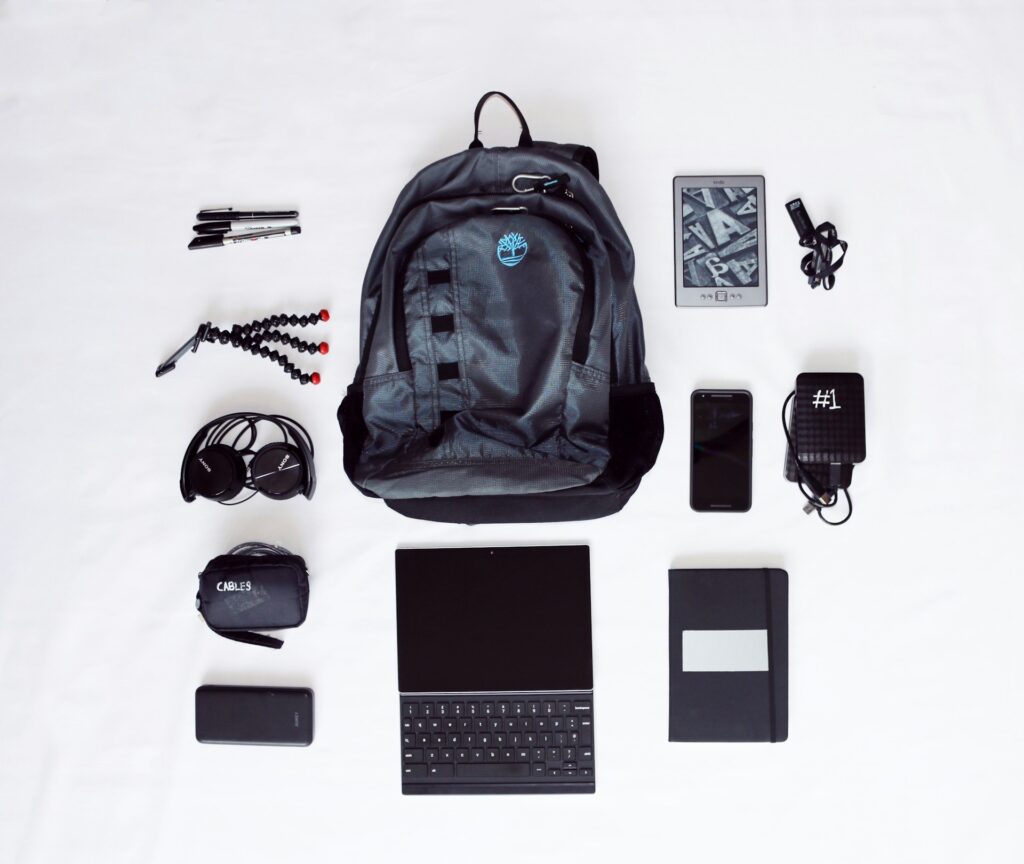
Carrying multiple devices may feel smart, but it quickly becomes heavy, complicated, and stressful. Each gadget requires chargers, cables, adapters, and protective cases. More items also increase the chances of theft or damage. Unless you need special equipment for work, rely mainly on your phone, one camera, and a power bank. Modern smartphones cover nearly all needs, including navigation, photography, and communication. Reducing gadgets also means less to pack, less to lose, and more room in your bag. Practical travel tips encourage minimalism, which gives you more freedom and peace of mind on the road.
Following Outdated Travel Tips

Some old travel advice no longer fits today’s world, yet many travelers still follow it. For example, printing stacks of confirmations is rarely necessary since digital copies are widely accepted. Arriving extremely early for domestic flights also wastes time in smaller airports. Instead, focus on current guidelines from airlines and destinations. Outdated advice often clutters planning and creates extra stress. Checking reliable, updated resources prevents confusion and keeps your journey efficient. Smart travel tricks always adjust to modern conditions, rather than relying on practices that no longer serve travelers well.
Carrying Bulky Travel Guides
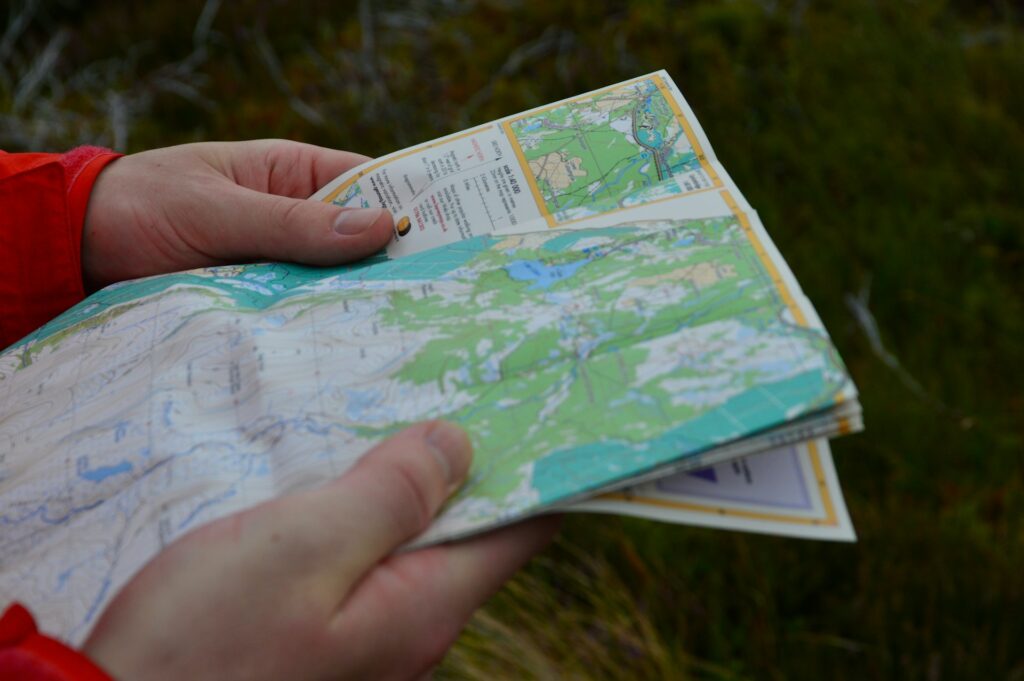
Traditional guidebooks once felt essential, but now they weigh down luggage and become outdated quickly. Digital resources like apps and offline maps provide updated details without adding bulk. These tools also offer navigation and recommendations that paper books cannot. If you still prefer printed information, reduce size by carrying only a slim list of key details. Cutting out unnecessary bulk makes your bag lighter and your trip more enjoyable. Smart travel hacks remind us to use technology for accuracy, while still keeping a backup if you prefer physical notes. Balance convenience with practicality.
Skipping Local Transportation Options
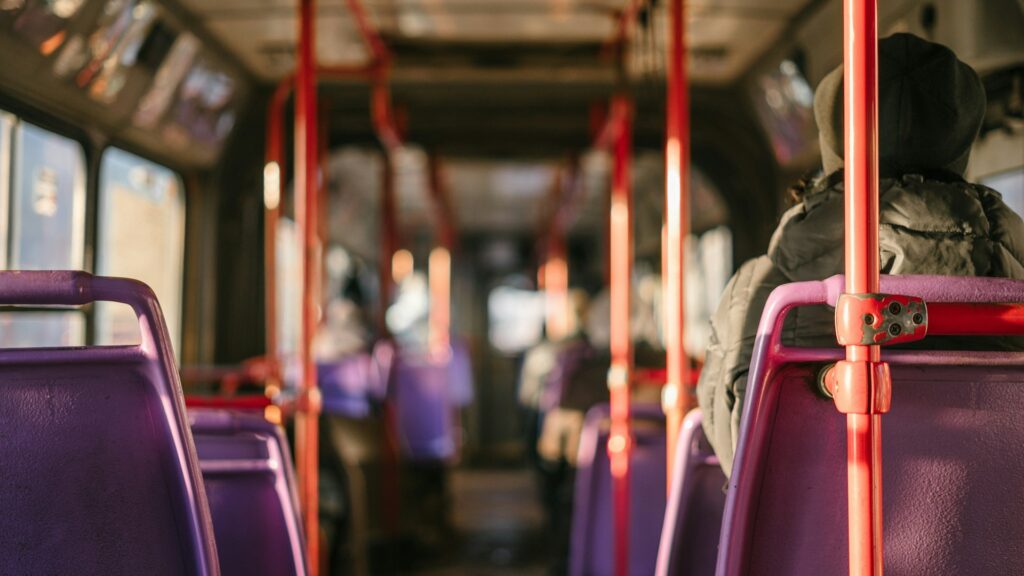
Many visitors rely on taxis or rideshares, assuming they are faster or safer. However, public transportation is often cheaper and more efficient. Trains, buses, and metro systems reduce costs and sometimes beat traffic entirely. Walking or biking in busy cities can even save more time. Learning about local transportation before arriving helps you plan routes better. Exploring like a local also deepens cultural experiences, giving your trip more authenticity. Smart travel tips recommend mixing transport methods for flexibility. This strategy saves money and allows you to see more than just the tourist spots.
Forgetting to Back Up Travel Documents
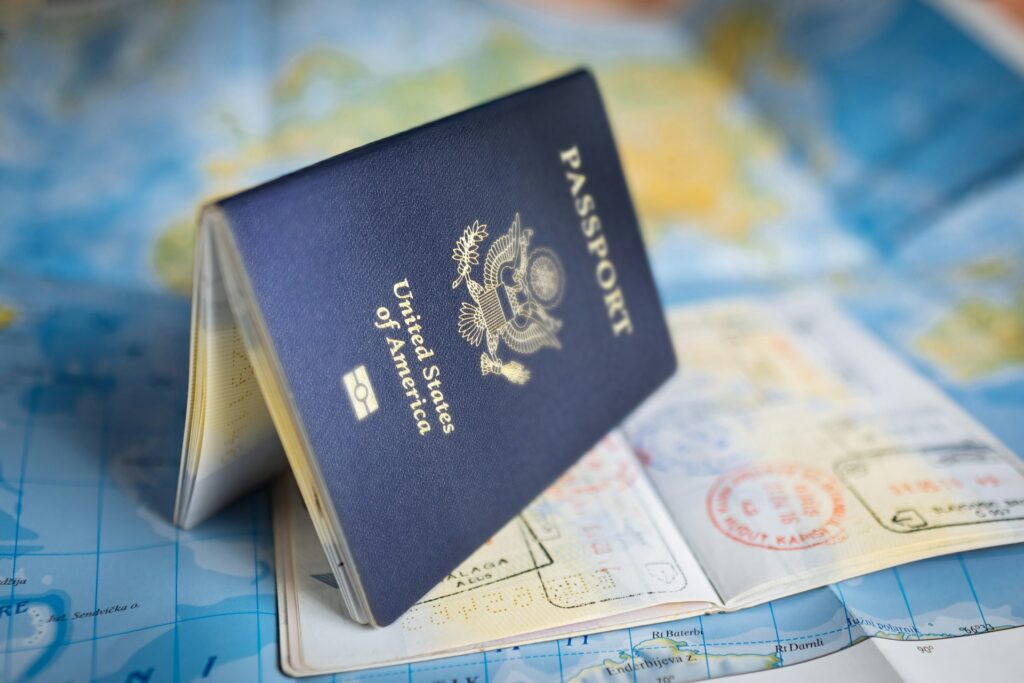
Only carrying physical copies of documents is a mistake that many travelers regret. If passports or IDs are stolen, replacements become extremely challenging. Smart travel hacks suggest scanning documents and storing them securely online, in addition to keeping a printed copy in a separate bag. This backup protects you during emergencies and makes the process of replacement easier. Keeping contact details for your embassy also speeds recovery. Small preparations prevent major setbacks, ensuring that a lost document does not ruin your trip. A little planning protects your identity and keeps travel stress low.
Final Thoughts

Not all travel hacks truly help. Some add stress, increase risks, or waste valuable time. By avoiding overpacking, outdated advice, and misplaced trust, you create smoother travel experiences. Smarter planning, flexible trip strategies, and minimalism give you more freedom to enjoy the journey. Travel should focus on experiences, not mistakes. Learning which shortcuts work and which fail helps you travel more confidently and effectively every time.
Disclaimer: This article was created with AI assistance and edited by a human for accuracy and clarity.
